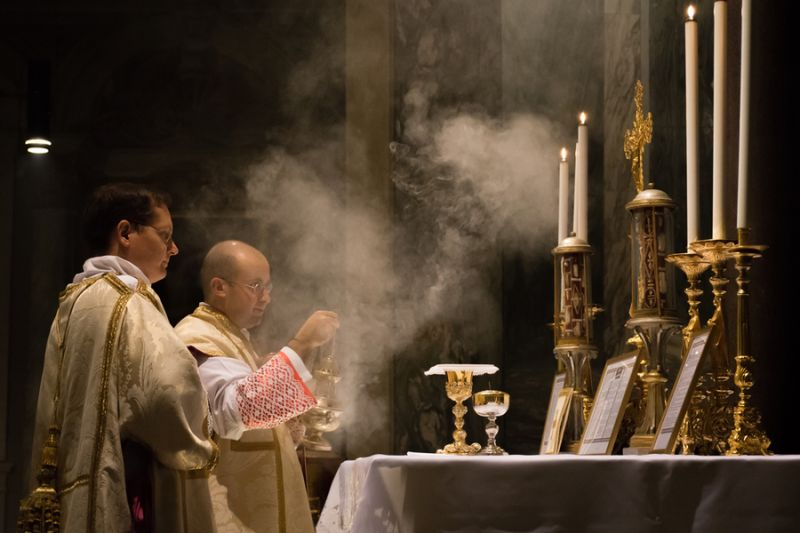Albany Diocese bans Latin Masses following new guidance from the Vatican
Washington D.C., Feb 27, 2023 / 17:28 pm (CNA).
The Diocese of Albany, New York, has at least temporarily banned the Traditional Latin Mass at two parishes to comply with an order issued by the Vatican last week.
Effective immediately, parish churches in the diocese are prohibited from celebrating the Latin Mass in accordance with the “Missale Romanum” of 1962, according to a statement from the diocese.
“In light of the rescript, which the Vatican sent last week, the celebration of the Usus Antiquior [Traditional Latin Mass] is currently on hold in parish churches in the Albany Diocese,” the diocese noted in a statement provided to CNA. “As we explore various possibilities, the Usus Antiquior can continue at Our Lady of Martyrs Shrine in Auriesville, which is not a parish church in the diocese.”
Holy Family Parish in Little Falls, which offered the Latin Mass at noon on Sundays and at 8 a.m. on Wednesdays, cannot celebrate the ancient form of the Mass for the time being. St. Ann’s Church in Fort Ann, which offered the Latin Mass on certain weekdays, was also informed it can no longer celebrate this form of the Mass.
At this time, the only church within the diocese that can offer the Latin Mass in accordance with the Missale Romanum of 1962 is the Our Lady of Martyrs Shrine in Auriesville. The shrine is currently closed until May. The diocese is also home to a Carmelite rite church: St. Joseph Church in Troy. The Carmelite rite has a unique liturgical tradition that celebrates an older form of the Mass in Latin, which is distinct from the “Missale Romanum” of 1962. According to the diocese, the Carmelite rite’s liturgy is not subject to the Vatican’s restrictions. The church offers a Latin Mass at noon on Sundays, Mondays, Wednesdays, and Fridays.
On July 16, 2021, Pope Francis issued a motu proprio titled Traditionis custodes, which directed bishops to designate locations for the celebration of the Latin Mass but added that those locations not be within parish churches. Many bishops offered dispensations for parishes that already had thriving Latin Mass communities. On Feb. 21, Cardinal Arthur Roche, who serves as the prefect for the Dicastery for Divine Worship and the Discipline of the Sacraments, issued a clarification, known as a rescript. The rescript clarified that all dispensations must be approved by the Vatican and ordered any bishop who had already issued dispensations to inform the dicastery, which will evaluate individual cases.
CNA reached out to Holy Family Parish and St. Ann’s Church but did not receive a response by the time of publication. However, one Holy Family parishioner, Fred Simon, told CNA that he is requesting prayers.
“We are living through historic and unprecedented times and the best thing we can do — and I’m asking everyone to do so — is pray for our bishops and priests,” Simon said.
The effect of Cardinal Roche’s rescript is still unclear, as many bishops have yet to clearly indicate what they will do next. However, some bishops have already sought and received Vatican approval for dispensations. These dispensations, however, are not permanent but instead only granted for a limited period of time. For example, the Diocese of Arlington, Virginia, was approved for two-year dispensations for three parishes that offer the Traditional Latin Mass: St. Anthony Mission in King George County, St. Rita in Alexandria, and St. John the Beloved in McLean. When that time is up, the dispensations will expire and will need the Vatican’s approval to be extended.
Some bishops have sought to accommodate Latin Mass goers in other ways. For example, Bishop Thomas Paprocki of the Diocese of Springfield, Illinois, redesignated a parish church that offers the Latin Mass, Sacred Heart, as a non-parish church to skirt the restrictions. Bishop Robert Barron of the Diocese of Winona-Rochester, Minnesota, designated a new chapel for the celebration of the Traditional Latin Mass that was not inside a parish church.






